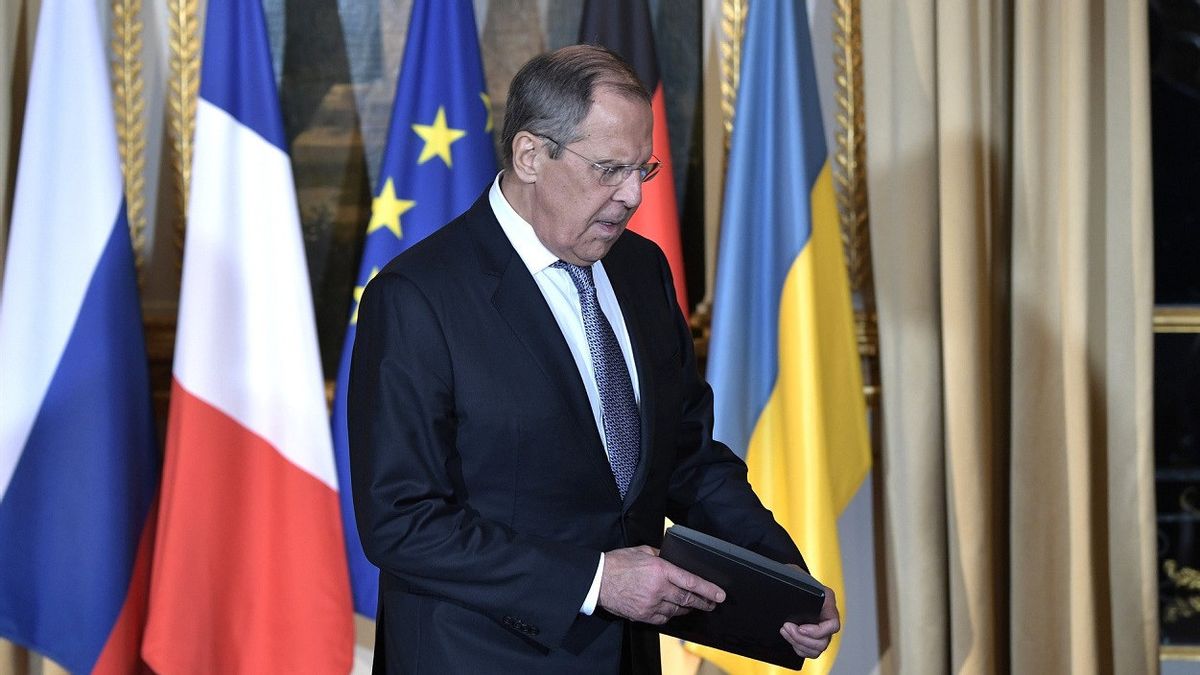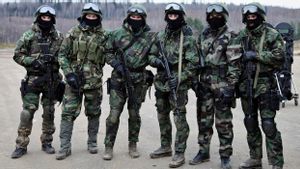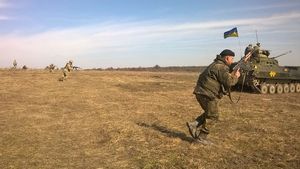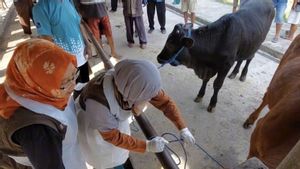JAKARTA - Russian diplomat Sergey Andreev felt unwelcome on the streets of Warsaw, even before protesters doused him with red liquid thrown in his face last Monday.
Immediately after Russia's invasion of Ukraine on February 24, Andreev, who was Moscow's ambassador to Poland, discovered the embassy's bank accounts had been frozen. Attempts to meet with Polish officials for any level of diplomatic discussions were impossible, he said.
His usual barber refused to cut his hair, while the insurance company refused coverage for the embassy car, Andreev said.
"We are practically isolated," he told Reuters, before Monday's paint incident, which has prompted Russia to demand an apology from Poland, or risk facing further, unspecified steps.
Across European capitals, Russian diplomats have been met with coldness, from diplomatic expulsions by governments, to protests by citizens and denial of service by companies.
The EU government has expelled at least 400 Russian diplomats and support staff. Warsaw has confiscated a building connected to the Russian embassy, with Oslo renaming a street in front of the Russian Embassy 'Ukraine Square'.
Public protests have prompted Russia's foreign ministry to warn diplomats to think twice when they exit after embassies were damaged by red paint in Rome, Sofia, and Prague. In London, protesters piled cooking utensils and utensils in front of the Russian mission in April, citing reports of Russian looting in Ukraine.
"There were attacks, practically terrorist acts against our institutions and on the physical security of diplomats," Russian Foreign Minister Sergei Lavrov told Rossiya 24 television.
"Now we do not recommend that they go out alone," Lavrov continued, calling the anti-Russian atmosphere fueled by the West discriminatory.

Separately, Swiss police told Reuters last month there had been "expressions of displeasure, threats and property damage against the Russian embassy", and police were making unspecified security adjustments. In Bucharest, a driver died by crashing his car into the gates of the Russian Embassy on April 6
As in Warsaw, the Russian embassy in Paris has run out of cash, with Moscow instructing diplomats there to cut spending to a minimum, according to diplomatic sources from a country that has not imposed sanctions on Russia and is in constant contact with the embassy. The embassy declined to comment.
In Lithuania, two major banks have or will cut remittances to and from Russia and Belarus, and, as in Poland, insurance companies have refused to insure embassy cars.
"They don't insure damages for the Russian embassy," said Andrius Romanovskis, chairman of the Lithuanian Association of Insurers.
"My understanding is that this decision is not commercial in nature, but relates to reputational and moral choices," he said.
The Russian embassy in the Lithuanian capital, Vilnius, confirmed the problem.
"The embassy has recently faced a number of problems in the banking and insurance sectors, as well as the fulfillment of obligations by certain companies under existing contracts," said press secretary Alexander Kudryavtsev.
The Czech capital, Prague, changed the name of the embassy street to "Ukrainian Hero Street", while the district where the Russian embassy is based has requested that a Russian school building, which has not been used since the Czechs expelled dozens of Russian diplomats, be provided for the children of Ukrainian refugees.
The moves have led to some retaliation from an increasingly isolated Russia, which has expelled an unspecified number of European diplomats.
SEE ALSO:
Poland's Foreign Ministry said roads had been dug around its embassy in Moscow, and the work of its embassies and consulates was "restricted in all respects by the Russian side," Russia's foreign ministry did not return a request for comment.
Russia's 10-week bombing of Ukraine has killed thousands, driven more than a quarter of the population from their homes, and razed the city. Europeans widely view it as unprovoked aggression by President Vladimir Putin, who says what he calls a special military operation launched in defense of Russia.
Western countries have responded by arming Ukraine's military and imposing sweeping sanctions on Russia's elite and financial system.
The plight of the diplomats is nothing compared to the devastation of war or the wider Western response, but it is a vivid example of the depth of feeling against the invasion and has swept through Moscow.
The English, Chinese, Japanese, Arabic, and French versions are automatically generated by the AI. So there may still be inaccuracies in translating, please always see Indonesian as our main language. (system supported by DigitalSiber.id)

















